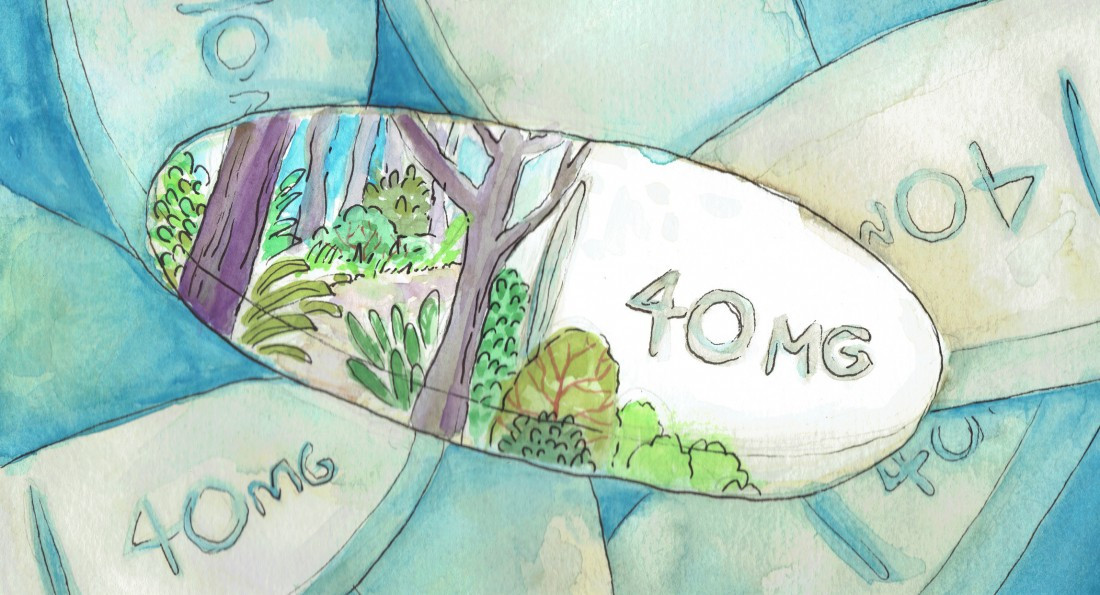The Unnatural Natural
Mental health care is more complicated than just getting out into nature
People often sigh dreamily when they find out about the life my grandmother lived on a reserve. Without running water or electricity, she chopped wood, hauled water and sustained herself through fishing and hunting.
What these people don’t like hearing is that my grandma used to watch TV for days straight when she stayed in a hotel in the city, and she was pleased when she found out she wouldn’t have to wash disposable diapers. This was because her life of sustaining herself was hard, and anything that eased the difficulty of her day to day chores was welcome.
This came to mind when I recently saw a Facebook meme presenting a picture of nature as the ultimate antidepressant, alongside a picture of pills that were presented as garbage.
Like a lot of on-reserve Indigenous kids and teenagers, I had a mental illness exacerbated by puberty. All the nature surrounding me didn’t soothe my depression and anger. From ages of 11 to 14, I used to burn myself, hit my head against cement walls hard enough to leave nasty bruises and walk on the highway near my house, hoping a semi wouldn’t see me and I’d get hit.
My parents, especially my mother, tried to help me, but with the nearest counsellor a two-hour drive away, there was only so much they could do. At one point, I told another adult in town what was happening to me, and I got mocked on the reserve once the news about my problems got out.
A doctor would visit our reserve once a month, and he noticed what was wrong with me when he saw burns I had inflicted on myself. I remember him fondly, because he was a big fan of U2, my favourite band. We talked about a concert he went to where Bono pulled a person up on stage and they played guitar with the band.
He asked me why I liked them, and I said because their songs had this realistic hope: bad things happen, but there’s still beauty around.
He put me on antidepressants after suspecting my depression might be related to a chemical imbalance in my brain.
I don’t know where I’d be if he hadn’t given me that medication. The pills weren’t instant happiness, but they helped dissipate the cloud in my brain. I was able to articulate to my family what was wrong, I began to trust the counsellor who my mom would drive me two hours each way to see, and the doctor would come in and see fewer burns on my legs every month.
Like my grandma with her TV and washing machines, antidepressants eased a difficulty in my life.
Meditation and time in nature can help, but why guilt people who require medication? That guilt contributes to people blaming themselves for their illnesses. In a world where mental illness is stigmatized, a positive way of overcoming it is needed.
Sonya Ballantyne is a local Indigenous filmmaker originally from northern Manitoba. Her favourite U2 song is “All I Want is You.”
Published in Volume 71, Number 9 of The Uniter (November 3, 2016)







